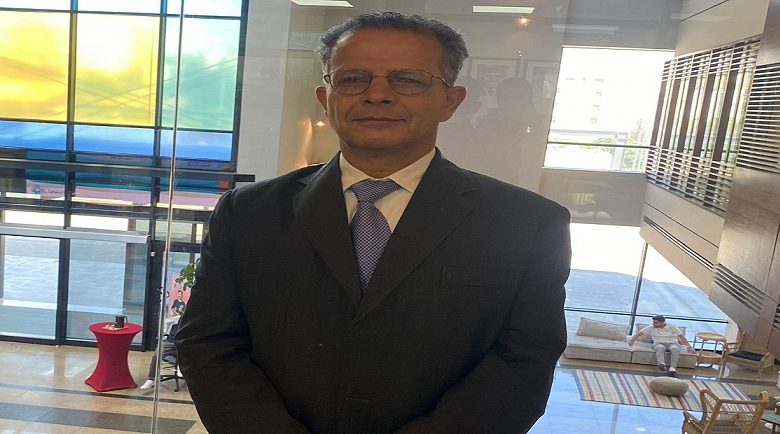
By : Nedal Zubeidi
Jordan Daily – Mr. Ghazi Al-Daboubi, the Project Management Office (PMO) Director at Luminus Technical University College (LTUC), a subsidiary of the Luminus Group, outlined the critical issues confronting Jordan’s business, education, and technical sectors. While acknowledging the significant hurdles, he expressed optimism about the reforms underway and highlighted initiatives aimed at bridging the gap between education and labor market demands.
In a recent interview with the Jordan Daily, Daboubi began by identifying three key challenges that have long impeded workforce development in the country: the mismatch between the skills provided by educational institutions and those sought by employers, the geographic divide between job seekers and employment opportunities, and the enduring social stigma attached to technical and service-sector jobs.
The first issue, he explained, is a “skill mismatch” that leaves many graduates ill-prepared for the demands of the labor market. “The education and training providers in Jordan are not offering the skills that businesses require,” he said, underscoring the frustration among both graduates and employers who find themselves out of sync.
Equally problematic, according to Mr. Daboubi, is the geographic mismatch. Many job seekers, he noted, live in rural areas, far from where the jobs are. “Job seekers are often located in the countryside , while the available jobs are in cities, miles away from their homes,” he said. This distance, combined with relatively low wages, forces workers to contend with high transportation costs or the need to relocate, which often makes employment unviable.
A more ingrained issue is what Daboubi described as the “social stigma” surrounding technical and service-oriented jobs, particularly those that require night shifts, such as roles in the hospitality industry. “There is a cultural reluctance to accept certain types of work, like overnight shifts for female employees in hotels or technical jobs,” he said. This perception, he added, “will take time to change.”
Nevertheless, Daboubi pointed to the hospitality sector as an example of success. 15 years ago, less than 5 percent of workers in Jordan’s five-star hotels were Jordanians, he noted. Today, that figure stands at 95 percent. “This shift is the result of long-term awareness campaigns and efforts to change social perceptions,” he said, adding that this success shows what can be achieved through persistence.
He also addressed the working conditions in Jordan’s technical and business sectors, where issues such as safety, health insurance, and insufficient vacation time remain challenges. “The state has addressed some of these issues, like social security, but there is still a long way to go,” he said. “However, I believe these problems can be solved with the right public policies.”
At the core of Luminus ’s strategy, Daboubi explained, is a focus on aligning educational programs with the actual needs of the labor market. Unlike other institutions, Luminus starts by analyzing the demands of the private sector and then designs its programs accordingly. “We don’t wait for students to graduate and then start looking for jobs,” he said. “We begin by researching what the labor market requires and build our programs from there.”
According to Daboubi, Luminus has invested significant resources in this approach. “We’ve spent a great deal on understanding the labor market in Jordan and the Middle East,” he said, noting that LTUC’s research-driven approach allows it to anticipate and meet the needs of employers.
Luminus has also forged partnerships with international organizations such as USAID, the European Union, UNICEF, and UNESCO, as well as regional entities like Al Ghurair and the Qatar Foundation. These partnerships have played a critical role in shaping Luminus’s programs. “We are a business-oriented institution, but our focus is on making a social impact,” Daboubi said, emphasizing the university’s mission to improve lives through education and training.
He also highlighted Luminus’s commitment to supporting marginalized groups, including women, youth,refugees and those living in rural areas, through specialized programs and scholarships. “We are always focused on evidence-based strategies,” he said, stressing the importance of data in guiding LTUC’s initiatives.
Looking ahead, Daboubi said that Luminus has ambitious plans to expand its model beyond Jordan to the wider Middle East and North Africa (MENA) region. However, he emphasized that the institution’s primary focus remains on solidifying its foundation within Jordan. “We want to prove ourselves here before expanding further,” he said.
Currently ,Luminus offers a range of programs,from BTEC Technical Diplomas to boot camps in areas like media and filmmaking,coding,cyber security, cloud computing and electric,hybrid automotive maintenance.Daboubi estimated that around 75 percent of students are self-funded, with the remainder receiving support from international donors. “Our graduates are leaving here with real skills, and they are finding good jobs both locally and abroad,” he said.
Among the success stories, he mentioned graduates who have gone on to work in the United States, earning competitive salaries. “Some of our graduates are making over a million dollars a year,” he said. However, he emphasized that Luminus remains focused on long-term development and sustainable growth.
Daboubi concluded with a reflection on Luminus’s broader mission.” Our vision is to create 25000 decent and sustainable jobs for Jordanians by 2030 ,” he said. “We believe in the power of education to transform lives.”

